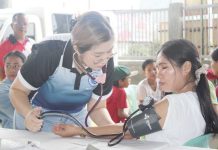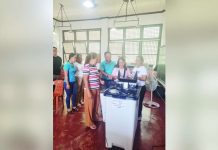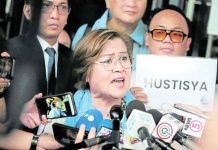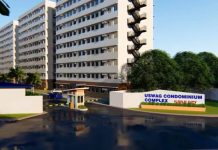ILOILO City – Municipal border control checkpoints in this province would be lifted beginning July 1. Travel passes will thus no longer be needed.
This was just one of the adjustments made by Gov. Arthur Defensor Jr. after the Inter-Agency Task Force for the Management of Emerging Infectious Diseases (IATF-EID) extended this province’s modified enhanced community quarantine (MECQ) status from July 1 to July 15.
Defensor said his executive order imposing border control points and travel passes, set to expire today, will no longer be extended.
“Indi mo na sia puede mapadugay at least we have maximized it. Nakabulig man ‘to sa aton MECQ sang nagligad nga semana,” Defensor said.
The governor has also eased non-essential travel, although all resorts, beaches and other tourism establishments in this province would still be closed.
All inbound travelers from Antique, Capiz, Aklan, Guimaras, Iloilo City, Bacolod City, and Negros Occidental would still be allowed entry.
To note, the imposition of border control and requiring of travel passes commenced on June 1, with the aim of curbing public mobility to arrest spread of the coronavirus disease.
Defensor said he would issue an executive order today, June 30.
NO MORE ‘DINE-INS’
Starting July 1, Defensor said there will be no more “dine-ins” in restaurants “kay hina gid aton compliance” as to the protocols being imposed like putting up barriers and the seating arrangement especially in small establishments.
“Kon indi masunod ang protocols might as well sundon ko na lang ang Omnibus Guidelines of the IATF,” Defensor said.
In a previous executive order, Defensor allowed a 10 percent seating capacity in restaurants and 50 percent in al-fresco setting.
GOV’T’S FOCUS
With the easing of travel restrictions, Defensor said they would focus now on the strict implementation of reverse isolation and observance of public health standards in workplaces.
Citing information from the Provincial Health Office, Defensor said coronavirus transmission may have come from those in the circulation.
On June 25, Defensor ordered all local government executives, local taskforces, punong barangays, Barangay Health Emergency Response Teams (BHERTs), and management of workplaces and offices to strictly enforce the health protocols especially those who have vulnerable members in their household.
These include senior citizens, pregnant persons, and persons with comorbidities.
For workplaces and establishments, Defensor ordered the following:
* putting up of screening or triage area at different points-of-entry where:
– employees submit health declaration and/or symptoms are assessed;
– non-contact temperature check is performed to all employees, customers, and any individuals who enter the premises;
– customers and other individuals who enter the premises are asked to register with StaySafe.ph; and
– as applicable, an isolation area shall be installed for symptomatic employees and once identified as a suspect coronavirus disease 2019 (COVID-19) case shall be reported to the BHERTs immediately.
* availability of hand washing stations, soap and sanitizers, and hand drying equipment or supplies to employees and clients/visitors which are placed in strategic locations in the establishment.
* observance of physical distancing or spacing through installation of physical barriers in enclosed areas where physical distancing may be compromised, i.e., blocking off of chairs, use of markers or stickers on the floor for spacing.
Meanwhile, for reverse isolation, local taskforces or BHERTs shall identify vulnerable persons at the barangay level (using the COVID-19 vaccination registry) and maintain a record/database for reverse isolation.
Vulnerable Persons are encouraged to stay at home, and to the extent possible, limit movement to the following instances: when indispensable for accessing essential goods and services, and no other person in the household can be designated for such purpose; for work and/or business in allowed establishments, industries and livelihood sectors; for allowed sports activities and other forms of exercise; and to attend allowed classes.
Minimum public health standards shall be strictly observed in the households with resident vulnerable persons.
Who needs to observe reverse isolation?
* residents who occasionally go out of their residences for work, business or other allowed activities
* residents who go out of their residences on a regular or daily basis for work or business, or other allowed activities (except treatment or visit in hospitals or healthcare facilities/clinics)
* residents who visit hospitals or health care facilities/clinics for out-patient treatment or medical check- up, whether as patient or companion
* residents who stay for a period exceeding 24 hours in hospitals or healthcare facilities/clinics, whether as patient or companion shall be placed under seven-day home quarantine and subject to 14-day reverse isolation upon their return home./PN





